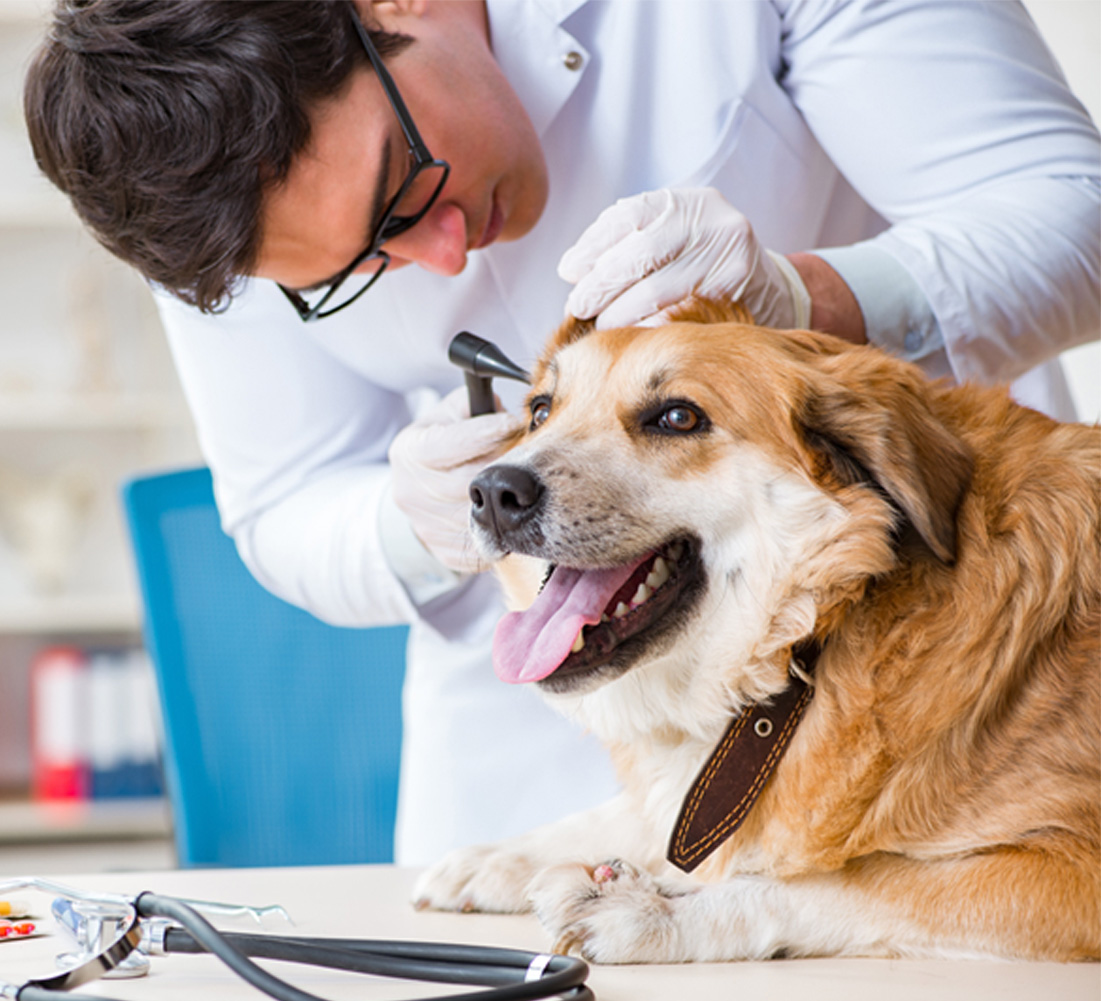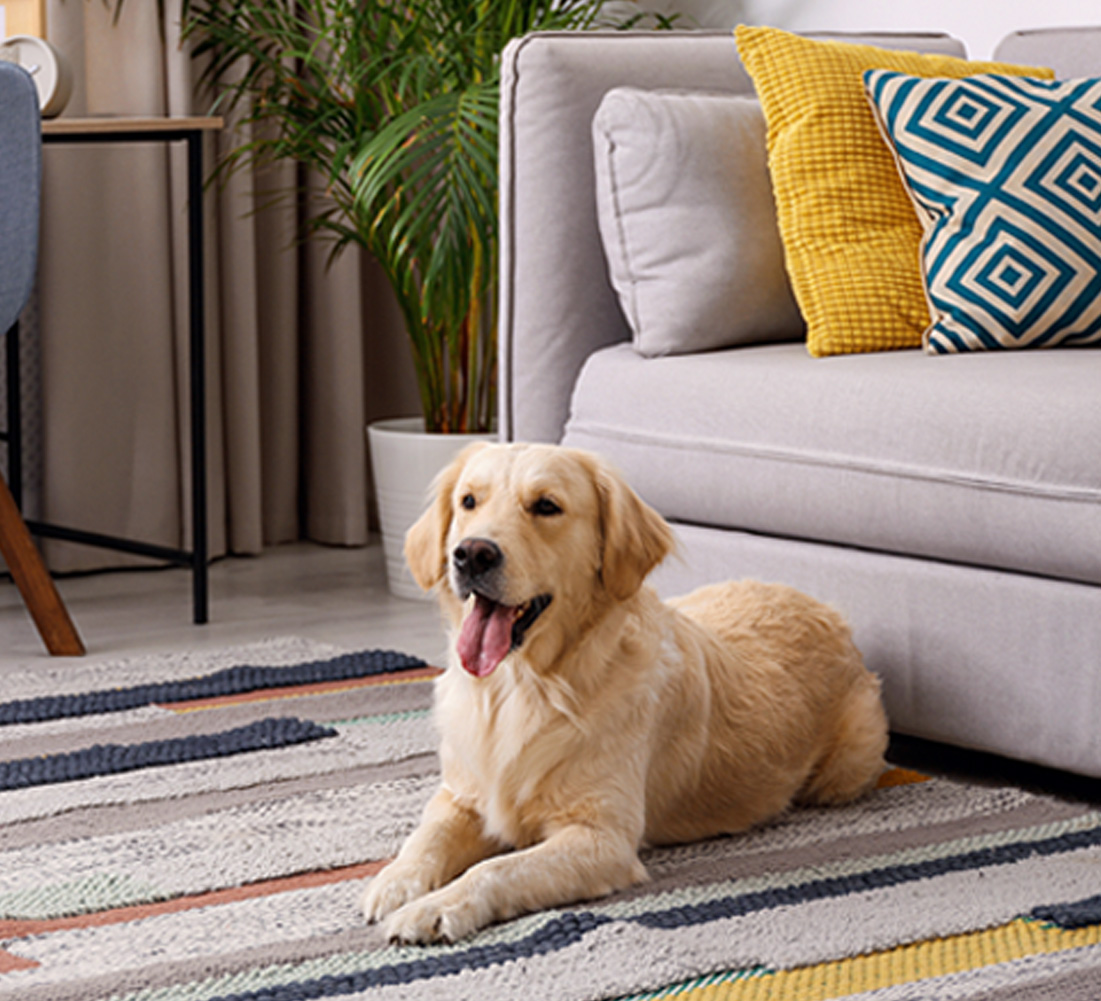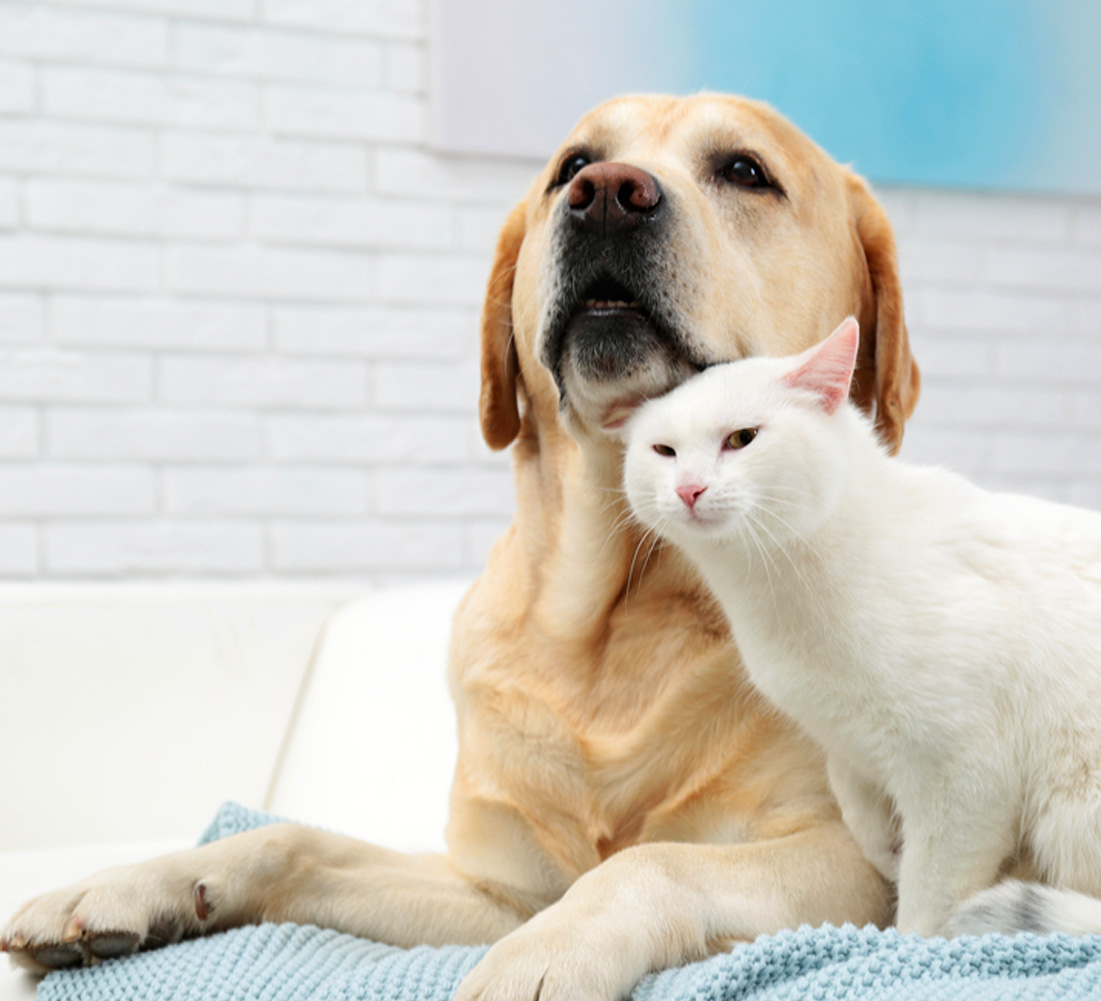Welcome home
You just brought home a new fur-ever friend.
Now what?
Welcoming a new pet into your life is the best—but it can also feel overwhelming. How do you start off on the right paw with your new dog or cat?
Whether you’re a first timer or a seasoned pet parent, here’s what you need to keep in mind.

Veterinary care 101
Providing regular veterinary care from the start is the best way to ensure a lifetime of good health.
First checkups — Take new dogs and cats for a complete veterinary checkup and necessary vaccinations. Both puppies and kittens are susceptible to everything from common respiratory infections to distemper.
Spay or neuter — This simple surgical procedure has many benefits, including a reduced risk of certain cancers, better overall health and improved temperament.
An ounce of prevention — Regular vet visits help your veterinarian identify potential problems before they become serious. When detected early, diseases can be simpler and less expensive to treat.
Pet-proofing the home
Protect your new pet and your property by doing a little prep work before arriving home.
- Clear any loose toys or objects on the floor
- Secure low-level cupboards that are used to store harmful chemicals
- Stow power cords, remove dangling strings, and look out for sharp edges.
- Keep anything you don’t want chewed or clawed out of paw’s reach
Also, pet-proofing should be a family affair. Set ground rules with kids on what they can and cannot give to the new pet.


ID for your pet
If your pet gets lost, proper identification can help to ensure a quick reunion. Most pets that wind up at the shelter arrive without tags or microchip. Many of those pets are never returned home.
The most common forms of pet ID include:
Collar and identification tags — Your dog or cat should always wear a collar—even while inside! Make sure ID tags are clean, legible and up to date with your best contact numbers.
Microchip — A microchip is painlessly embedded under your pet’s skin, where it can be scanned for digital contact info using a simple reader. Be sure to register the chip with the manufacturer and keep information up to date.
Pro tip: Don’t forget to update your contact info every time you move or change your phone number.
Introducing new pets to your pack
Bringing a new pet home can cause stress and unwanted behavior from your other animals. How do you introduce the new addition to your family?
Scent introductions — Before any face-to-face intros, allow pets to grow comfortable with each other’s scent. Let them sniff one another through a closed door, then through a baby gate.
Once in a while, allow the newbie and the resident pet to wander freely—one at a time—through a room where the other has already been.
Play referee — Always supervise pets until you know how they’ll get along
Neutral ground — Reduce the likelihood of territorial behavior by introducing dogs outside in a large, open space or through an outdoor fence.
Cat refuge — Establish “safe havens” for cats by creating high perches out of dogs’ reach or by using a baby gate to keep dogs out of the room. Also, consider crating your dog while your cat explores.


Feeding your pet
Pet obesity is a real threat to your pet's health. Just a few extra pounds can lead to obesity-related problems such as arthritis, knee injuries and diabetes.
For your pet's health and safety, avoid feeding table scraps and bones. Many common foods such as grapes, raisins, macadamia nuts and sugar-free gum are very toxic to pets; bones can cause serious injuries, especially if swallowed.
Cats are carnivores and need a meat-based diet for survival. Never feed your cat a vegan or vegetarian diet.
Consult your veterinarian on the best diet for your pet or before changing their existing diet.
We’re here to help
Nationwide® offers pet health insurance with coverage for accidents, illnesses and more.* We know what we’d want covered for our pets, so we made sure we covered it for yours. And, with 40 years of experience protecting pets, there’s nothing we haven’t seen.
Get reimbursement for eligible vet bills including:
Accidents & injuries
Chronic illnesses
Procedures
Common illnesses
Hereditary conditions
And more
Serious illnesses
Testing & diagnostics
*Some exclusions may apply. Certain coverages may be subject to pre-existing exclusion. See policy documents for a complete list of exclusions. Plans may not be available in all states. Policy eligibility may vary.